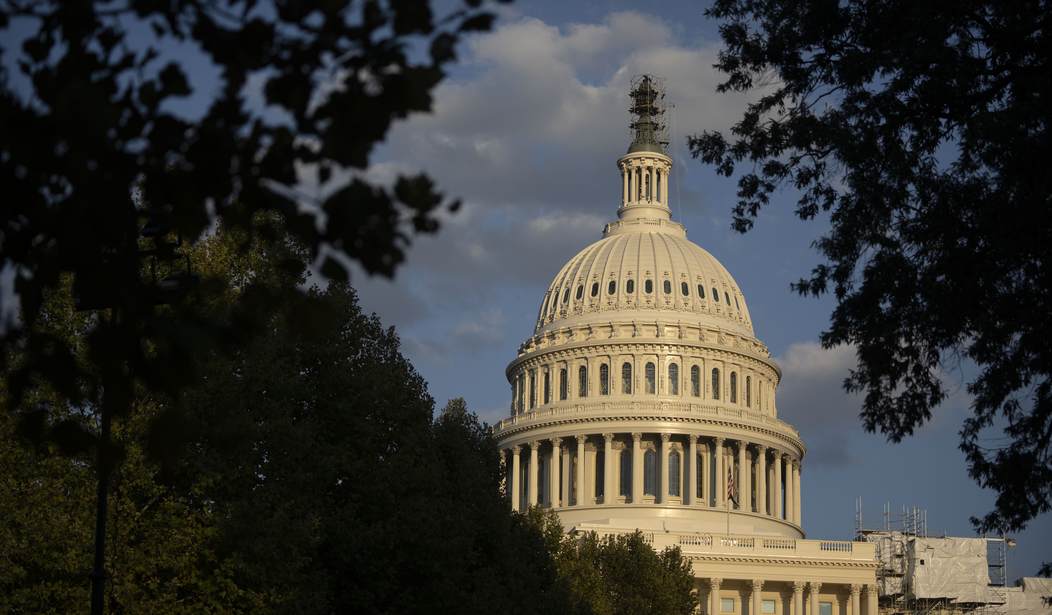Congress is preparing to raise taxes on consumers. Legislation likely to be considered in September reforms something called the de minimis privilege exempting some imports from tariffs imposed pursuant to Section 301 of the Trade Act of 1974. The reform is a problem for consumers because it is not a fair broad-based change in law and merely targets certain successful industries.
One shocking aspect of the debate on the change to Section 301 is that it will hike taxes in the form duties and tariffs. Some Republicans are supporting this effort to increase taxes American consumers in the name of closing a tariff ‘loophole.’ In the Senate, Sen. Ron Wyden (D-OR) has been joined by Republican Sens. Cynthia Lummis (R-WY) and Susan Collins (R-ME) in narrowing the definition of imports exempt from tariff taxes. In the House, Ways & Means Committee Chairman Jason Smith (R-MO) has voiced support to end the de minimis exemption and has his own approach to change the law. The fact is that a tariff is nothing more than a tax and any effort to make more American importers pay the tariff will result in increased taxes on an already over-taxed American consumer.
The motives of passing this change sound reasonable. The U.S. Senate Committee on Finance put out a press release on August 8, 2024, that the Wyden bill, “FIGHTING for America Act of 2024,” will “stop the flow of illicit goods, including fentanyl, counterfeits, and products made with forced labor.” The proposed change in law does not change the fact that currently packages exempted from tariffs are still subject to inspection for illicit goods and drugs like fentanyl, counterfeits and products made with forced labor. This bill is merely protectionism cloaked in protecting Americans.
Recommended
This legislation is nothing more than cronyism and protectionism. Kim Glas, the president of the National Council of Textile Organizations (NCTO) argued in support of expanding tariffs, “this critical bipartisan legislation (is) designed to reform the outdated de minimis provision in U.S. trade law and curtail the abuse of this loophole, which has had a devastating impact on U.S. manufacturers.” The law currently allows packages under $800 to avoid duties and tariff taxes to avoid a new huge burden on Customs officials. The Glas quote shows that domestic producers of textiles are desperate to tax foreign competitors rather than innovating and cutting costs to compete.
Protectionists are excited that they will not have to change their business model to compete, because they can rely on Congress to give them the easy way out. The National Council of Textile Organizations, Glas’ group, voiced support for the bill because it will “eliminate de minimis exemptions for import-sensitive products and goods subject to trade remedies, including the majority of textile and apparel imports, while helping staunch the flow of millions of low value duty-free shipments entering the United States daily.” They are more concerned about taxing consumers to deter them from purchasing foreign manufactured clothing. Glas was quoted as arguing that the bill will “tighten the rules for the entry of millions of imported packages coming through the de minimis loophole each day and help level the playing field for domestic textile and apparel manufacturers severely harmed by the onslaught of these shipments.” Domestic producers of apparel should change their business model instead of relying on government to protect them from competition.
The reasons for this legislation are based in half-truths and flat-out fallacies. The de minimis exemption allows Customs and Border protection to target drug interdiction and terrorism rather than wasting resources slowing the flow of cheap clothing into the U.S. Gabriella Beaumont-Smith of Cato Institute wrote on November 24, 2023 that “millions of shipments enter America’s ports every day, and processing these shipments is onerous as U.S. Customs and Border Protection (CBP) must both review extensive paperwork and handle inspections to ensure imports comply with U.S. law.” This change would impose a huge burden to process all these packages to calculate and levy customs duties and sales taxes for no good reason.
This claim that these low-value packages are the preferred method to import fentanyl is bunk. There is no evidence supporting a claim that the de minimis packages are any more of a threat than the ones currently subjected to a tariff tax.
Cronyism on the part of Glas’ NCTO special interest organization should be rejected. Congress should either drop this legislation that will impose a new tax or rewrite the law to impose a fair, transparent and across the board change in law that does not merely protect domestic companies from competition.
























Join the conversation as a VIP Member